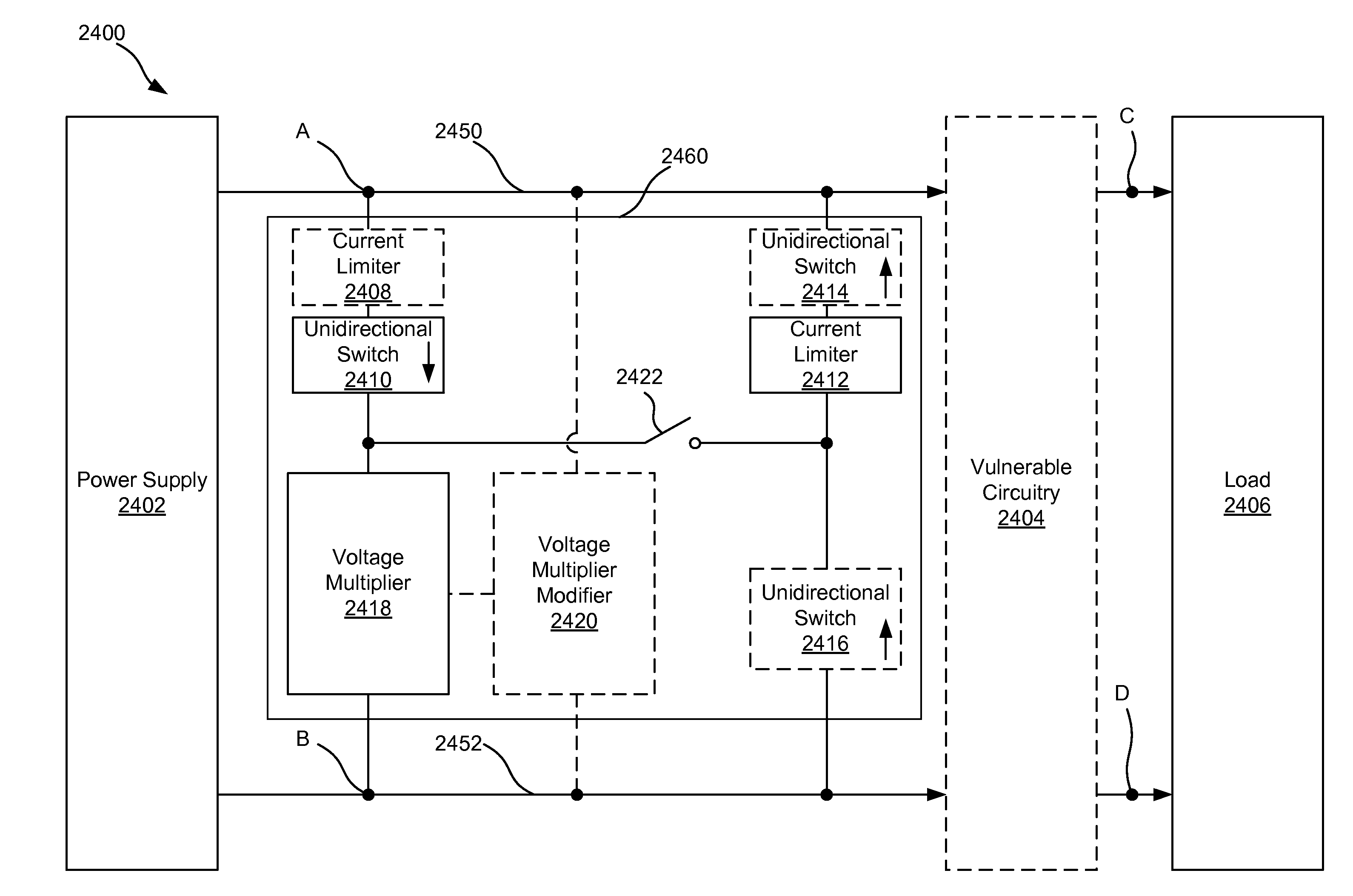Adjustable non-dissipative voltage boosting snubber network
a non-dissipative, voltage-boosting technology, applied in the direction of electric variable regulation, process and machine control, instruments, etc., can solve the problems of reducing affecting the efficiency of power dissipation, so as to achieve the effect of boosting a voltage and reducing the voltag
- Summary
- Abstract
- Description
- Claims
- Application Information
AI Technical Summary
Benefits of technology
Problems solved by technology
Method used
Image
Examples
Embodiment Construction
[0038]The present disclosure relates generally to power supply systems. More specifically, but without limitation, the present disclosure relates to a non-dissipative snubber for use in a power supply system.
[0039]The word “exemplary” is used herein to mean “serving as an example, instance, or illustration.” Any embodiment described herein as “exemplary” is not necessarily to be construed as preferred or advantageous over other embodiments.
[0040]For the purposes of this disclosure, a current limiter is any device or circuit that limits a current that can pass through the current limiter or that limits a rate at which current passing through the current limiter can rise or fall. In some embodiments, a current limiter can limit both the rate of increase and an upper bound of the current passing through the current limiter. An inductor, resistor, JFET, MOSFET, and IGBT are all examples of current-limiting elements since each are able to limit the rate of change of and amount of current...
PUM
 Login to View More
Login to View More Abstract
Description
Claims
Application Information
 Login to View More
Login to View More - R&D
- Intellectual Property
- Life Sciences
- Materials
- Tech Scout
- Unparalleled Data Quality
- Higher Quality Content
- 60% Fewer Hallucinations
Browse by: Latest US Patents, China's latest patents, Technical Efficacy Thesaurus, Application Domain, Technology Topic, Popular Technical Reports.
© 2025 PatSnap. All rights reserved.Legal|Privacy policy|Modern Slavery Act Transparency Statement|Sitemap|About US| Contact US: help@patsnap.com



